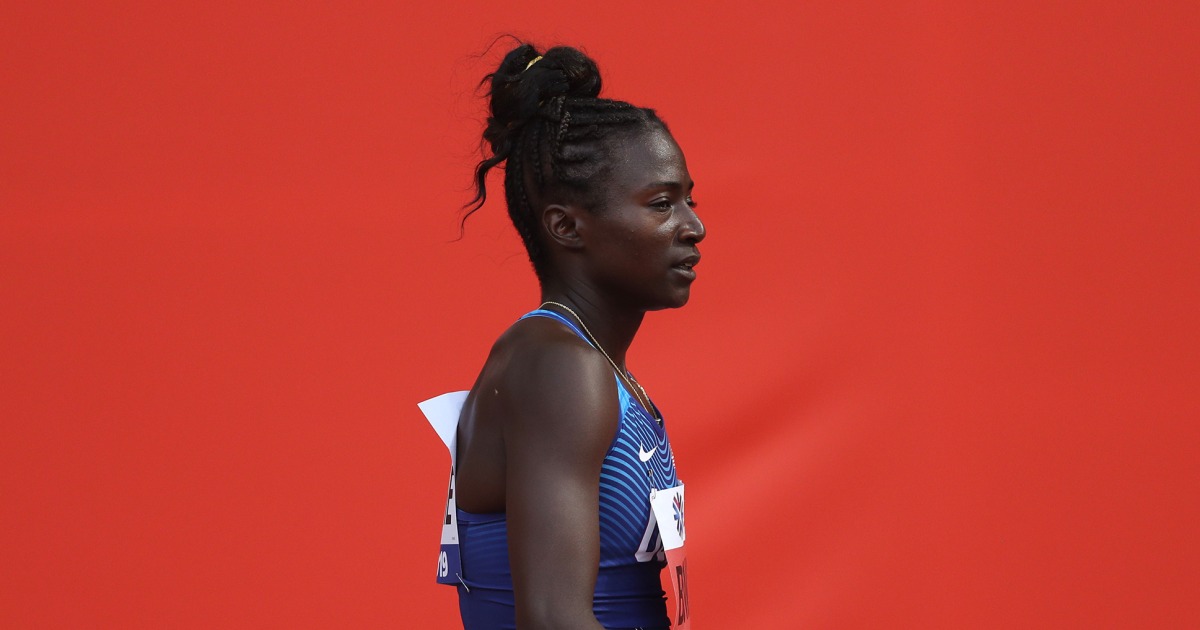
The death of Olympic track and field star Tori Bowie, who died of pregnancy complications last month, has prompted questions about how a seemingly healthy, financially stable person could face such a tragic outcome.
Experts say that the racial health disparities that lead to maternal health complications for Black people persist despite a person’s economic status or clean bill of health. In short, it could happen to any Black person.
“Maternal mortality for Black women has nothing to do with health or economic status,” said D’Andra Willis, of The Afiya Center, a Black-centered reproductive justice group. “You could be the richest or the poorest, Black women are still three to five times more likely to die in childbirth than any poor white woman.”
Regina Moss, president of the Black women-centered reproductive justice group In Our Own Voice, agreed. “If this is happening to the Olympic athlete who’s likely doing everything she can do to have a healthy pregnancy, it’s happening to the everyday woman,” Moss said.
Bowie, a three-time Olympic medalist, was found dead inside a Florida home on May 2. An autopsy report from Florida’s Orange County Medical Examiner’s Office showed that Bowie died while about eight months pregnant with a “well developed fetus.” The report said there was evidence she was “undergoing labor (crowning)” when she died. The autopsy report noted respiratory distress and eclampsia as possible complications. Eclampsia is seizures that occur during or after pregnancy, and is a complication of the blood pressure condition preeclampsia, which may develop during pregnancy, according to the Cleveland Clinic.
Bowie’s death has renewed conversations about the disturbing negative health outcomes for Black women, who are more likely to die in childbirth than white women and are more likely to have pregnancy complications. Allyson Felix, the most decorated track and field athlete in the U.S., was among scores of women calling attention to the Black maternal mortality rate after the death of her Olympic 4×100 meter relay teammate. She highlighted her own pregnancy complications in an essay published by Time on Thursday, writing that she developed preeclampsia and delivered her daughter Camryn prematurely via C-section in 2018. “I was unsure if I was going to make it,” she wrote. Felix also called attention to tennis legend Serena Williams, who said she nearly died after giving birth to her daughter Olympia in 2017, and superstar singer Beyoncé, who experienced pregnancy complications with her twins Rumi and Sir.
These stories only underscore the truth that these disparities exist for Black people despite their health, economic and education status, experts say. A 2023 study from the National Bureau of Economic Research found that the richest Black women in the U.S. have worse maternal and infant health outcomes than the poorest white women.
“You’re seeing this in income but also in education,” Moss said. “And it’s not just maternal mortality, it’s infant mortality. Black women with secondary degrees have worse outcomes than white women that don’t even graduate from high school.”
Researchers have long connected these health disparities to institutional racism, which often leaves Black women with little access to quality prenatal care. Arline Geronimus, a professor in health behavior and education at the University of Michigan School of Public Health coined the term “weathering” to describe how the stress of racial and gender discrimination wears down the body over a lifetime and impacts health outcomes; this weathering cannot be undone through implicit bias training and more prenatal care, experts like Moss say. Despite this research, misconceptions about Black maternal disparities persist.
“There’s often blaming, saying we eat poorly, we’re overweight, we’re diabetic, we smoke, we drink during pregnancy, we’re not married, we’re getting pregnant too young,” Moss said. “There’s all this blaming for things we’re ‘doing’ that causes these problems, but the data just doesn’t support that. There’s not just health issues, there’s socio-political issues, economic issues, and you can’t talk about us without taking these things into consideration.”
In Our Own Voice is among several Black-led reproductive justice groups working to address these disparities. The organization on Thursday released a report with more than two dozen policy recommendations for improving Black maternal health outcomes through addressing structural racism and gender oppression. The report urges federal and state leaders to fund doula and midwifery care, improve health care for incarcerated women, provide abortion access, implement comprehensive sex education and more.
Dr. Susan Cheng, the associate dean for public health practice and diversity, equity and inclusion at the Tulane University School of Public Health, said it’s also important to shift the conversation about Black maternal health by thinking deeply about how people simply engage with one another.
“I hope this tragedy, as Allyson Felix said, is not in vain,” Cheng said. “I hope it resparks a very important and timely conversation about the ways we can better support our friends, families, and community members.”
Source: | This article originally belongs to Nbcnews.com









